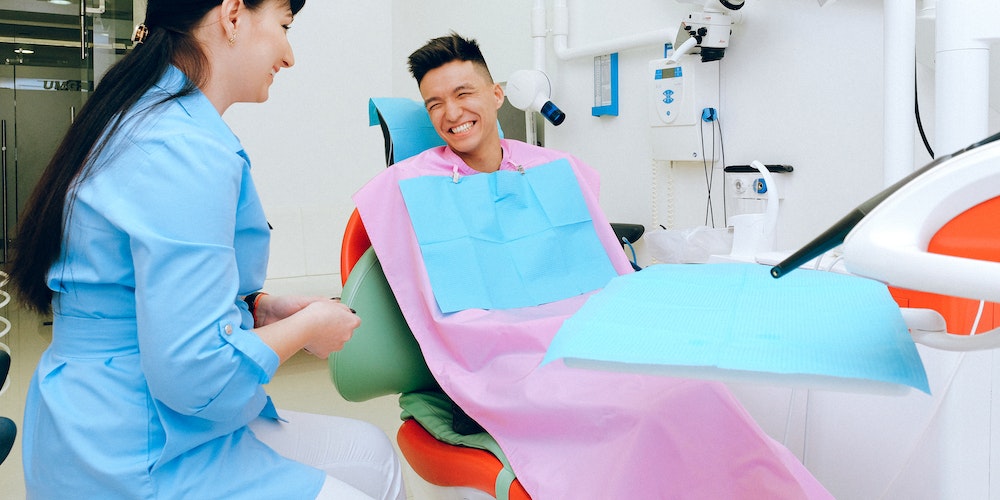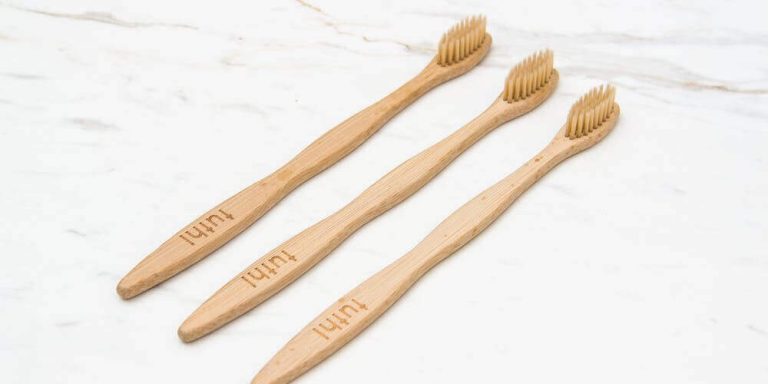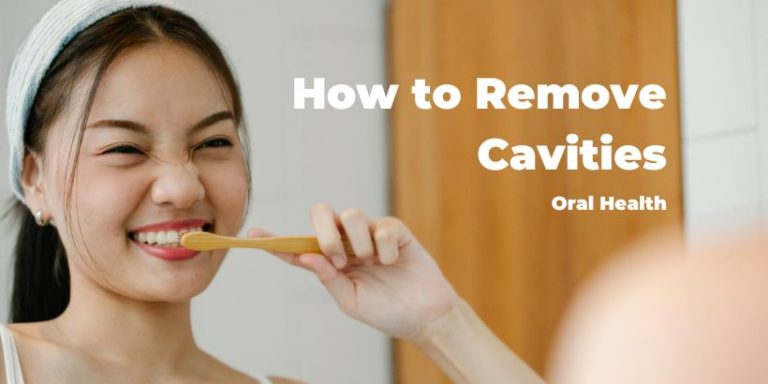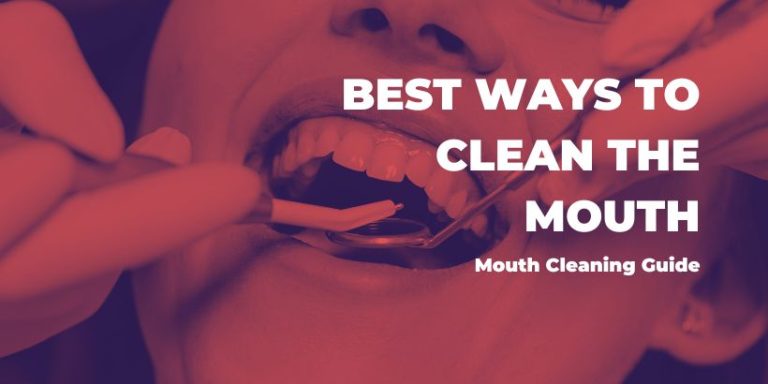In this article, we’ll discuss the ultimate guide to maintaining healthy teeth for busy professionals.

Introduction
Welcome to our comprehensive guide on maintaining healthy teeth for busy professionals. In today’s fast-paced world, juggling work, personal life, and other responsibilities can leave little time for dental care. However, neglecting oral health can lead to various dental issues, affecting overall well-being. In this guide, we provide valuable insights and practical tips to ensure that even with a hectic schedule, you can prioritize and maintain excellent oral hygiene.
Table of Contents
The Importance of Dental Care
Healthy teeth and gums play a crucial role in our daily lives, impacting not only our smiles but also our overall health. Poor oral hygiene can lead to dental problems such as cavities, gum disease, bad breath, and even tooth loss. Additionally, research has shown that oral health is linked to several systemic health conditions, including cardiovascular disease, diabetes, and respiratory issues. Therefore, investing time in proper dental care is essential for a healthy and fulfilling life.
Understanding Common Dental Problems
Before we delve into the tips for maintaining healthy teeth, let’s briefly explore some of the most common dental problems faced by busy professionals.
1. Tooth Decay
Tooth decay, or cavities, is the result of plaque buildup on the teeth. The combination of bacteria, food particles, and saliva forms plaque, which produces acids that erode tooth enamel. With hectic schedules, frequent snacking and consumption of sugary beverages become common, increasing the risk of tooth decay.
2. Gum Disease
Gum disease, also known as periodontal disease, affects the gums and bones supporting the teeth. Plaque and tartar buildup along the gumline can lead to inflammation, causing gums to bleed and recede. Left untreated, gum disease can progress, leading to tooth loss.
3. Teeth Sensitivity
Busy professionals often encounter tooth sensitivity, characterized by discomfort or pain when consuming hot, cold, sweet, or acidic foods and beverages. Sensitivity may result from enamel erosion, gum recession, or worn fillings.
Maintaining Healthy Teeth for Busy Professionals
In this section, we will delve into the ultimate guide to maintaining healthy teeth for busy professionals. We will cover everything from daily oral care routines to preventive measures, all tailored to suit your busy lifestyle.
1. Prioritize Daily Oral Care
To start, prioritize daily oral care as the foundation of good dental health. Follow these steps to ensure your teeth and gums stay healthy:
- Brushing: Brush your teeth at least twice a day for two minutes using fluoride toothpaste. Brush gently in circular motions to remove plaque and food debris effectively.
- Flossing: Floss daily to clean between teeth and remove plaque in areas your toothbrush can’t reach.
- Mouthwash: Use an antiseptic mouthwash to kill bacteria and maintain fresh breath.
2. Healthy Diet, Healthy Teeth
Maintaining a balanced and nutritious diet is crucial for dental health. Incorporate these teeth-friendly foods into your daily meals:
- Calcium-Rich Foods: Dairy products, leafy greens, and almonds provide essential calcium for strong teeth.
- Crunchy Fruits and Vegetables: Apples, carrots, and celery help clean teeth and stimulate saliva production.
- Limit Sugary and Acidic Foods: Minimize consumption of sugary and acidic foods, as they can lead to tooth decay and enamel erosion.
3. Stay Hydrated
Busy professionals may forget to stay hydrated during the day. Staying hydrated is essential for overall health and dental well-being.
Drinking plenty of water throughout the day helps wash away food particles and neutralize harmful acids in the mouth.
4. Carry Oral Care Essentials
Keep a travel-sized toothbrush, toothpaste, and floss in your bag or at your desk. This way, you can maintain oral hygiene even during a busy workday.
5. Limit Snacking
Frequent snacking increases the exposure of your teeth to sugar and acids. Try to limit snacking and opt for healthier choices when you do snack.
6. Schedule Regular Dental Checkups
Busy professionals often neglect dental check-ups due to time constraints. However, regular visits to your dentist are vital for early detection and prevention of dental issues. Schedule dental appointments at least twice a year.
7. Consider Preventive Treatments
Ask your dentist about preventive treatments such as dental sealants or fluoride applications, which can help protect your teeth from decay.
The Importance of Professional Dental Cleanings
In addition to maintaining a diligent oral care routine, scheduling regular professional dental cleanings is paramount for busy professionals. Professional cleanings, also known as dental prophylaxis, are typically recommended every six months and offer numerous benefits.
1. Thorough Removal of Plaque and Tartar
During a dental cleaning, a skilled dental hygienist will use specialized tools to remove plaque and tartar buildup from your teeth and along the gumline. Even with meticulous brushing and flossing, some areas can be challenging to reach, making professional cleanings essential for a comprehensive clean.
2. Early Detection of Dental Issues
Regular dental checkups provide an opportunity for your dentist to identify any potential dental problems early on. By catching issues like tooth decay, gum disease, or dental infections in their initial stages, you can avoid more extensive and costly treatments down the road.
3. Gum Disease Prevention
Gum disease is a prevalent dental problem that can lead to serious oral health issues if left untreated. Professional dental cleanings can help prevent and manage gum disease by removing bacteria and plaque that contribute to its development.
4. Stain Removal for a Brighter Smile
Busy professionals often consume beverages like coffee, tea, or red wine that can cause tooth stains over time. Dental cleanings include polishing your teeth, effectively removing surface stains and giving you a brighter, more attractive smile.
Advanced Dental Care Techniques
In addition to regular dental cleanings and checkups, busy professionals can benefit from incorporating advanced dental care techniques into their routine.
1. Dental Irrigators
Dental irrigators, also known as water flossers, use a stream of water to clean between teeth and along the gumline. They are an excellent addition to traditional flossing, especially for individuals with braces, dental bridges, or implants.
2. Electric Toothbrushes
Consider using an electric toothbrush to enhance your brushing effectiveness. Electric toothbrushes can remove more plaque and provide a more thorough clean compared to manual toothbrushes, saving you time while ensuring better oral hygiene.
3. Tongue Scrapers
A tongue scraper can help reduce bacteria and improve your breath by gently removing plaque and debris from the surface of the tongue. Incorporate tongue scraping into your daily routine for fresher breath and better oral health.
4. Interdental Brushes
Interdental brushes are small, cone-shaped brushes designed to clean between teeth and braces. They are an excellent alternative for those who find traditional flossing challenging or uncomfortable.
Customized Dental Care Plans
Every individual’s dental needs are unique. As a busy professional, consider working with your dentist to create a personalized dental care plan tailored to your specific requirements. A customized plan takes into account your oral health, lifestyle, and any existing dental concerns, ensuring that you receive the most effective and efficient care.
The Role of Nutrition in Dental Health
As a busy professional, maintaining a well-balanced diet not only benefits your overall health but also plays a significant role in promoting dental well-being. Here are some essential nutrients that contribute to strong and healthy teeth:
1. Calcium
Calcium is a crucial mineral for maintaining strong teeth and bones. It helps strengthen tooth enamel, making your teeth more resistant to decay. Incorporate calcium-rich foods such as milk, cheese, yogurt, and leafy greens into your diet to support your dental health.
2. Vitamin D
Vitamin D aids in the absorption of calcium and is essential for bone health. Sunlight is a natural source of vitamin D, but you can also find it in foods like fatty fish, egg yolks, and fortified dairy products.
3. Vitamin C
Vitamin C is essential for gum health as it promotes collagen production, which helps maintain the integrity of the gums. Citrus fruits, strawberries, and broccoli are excellent sources of vitamin C.
4. Phosphorus
Phosphorus, along with calcium, contributes to strong teeth and bones. It can be found in foods like meat, fish, poultry, dairy products, and nuts.
5. Fluoride
Fluoride is a mineral that strengthens tooth enamel and helps prevent tooth decay. Many communities have fluoridated water, and fluoride is also present in toothpaste and mouth rinses. Using fluoride-containing dental products can significantly benefit your dental health.
The Impact of Stress on Dental Health
As a busy professional, stress can be a constant companion. However, managing stress is not only crucial for your overall well-being but also for your oral health. High levels of stress can lead to various dental problems, including:
1. Teeth Grinding (Bruxism)
Stress can cause you to clench or grind your teeth, especially during sleep. Bruxism can lead to worn-down teeth, jaw pain, headaches, and other dental issues. Consider stress-reduction techniques such as meditation, exercise, or seeking support from a mental health professional to alleviate bruxism.
2. Temporomandibular Joint (TMJ) Disorder
Stress can contribute to TMJ disorder, which affects the jaw joint and surrounding muscles. Symptoms may include jaw pain, clicking sounds, and difficulty opening or closing the mouth properly.
3. Canker Sores and Cold Sores
Stress weakens the immune system, making you more susceptible to infections, including oral herpes (cold sores) and canker sores. These can be painful and may require treatment to alleviate discomfort.
Incorporating Stress-Relief Practices
To safeguard your dental health, it’s essential to manage stress effectively. Here are some stress-relief practices that you can incorporate into your busy schedule:
1. Mindfulness and Meditation
Practicing mindfulness and meditation can help reduce stress levels, improve focus, and promote overall well-being. Consider setting aside a few minutes each day for guided meditation or simply taking a moment to focus on your breath.
2. Physical Activity
Engaging in regular physical activity can be an excellent way to relieve stress. Whether it’s going for a brisk walk, jogging, yoga, or hitting the gym, find an activity that you enjoy and can easily fit into your routine.
3. Time Management
Proper time management can alleviate stress caused by overwhelming workloads. Prioritize tasks, set realistic goals, and learn to delegate when possible to create a more balanced work-life schedule.
4. Hobbies and Creative Outlets
Having hobbies and creative outlets can provide a much-needed break from work-related stress. Whether it’s painting, writing, gardening, or playing a musical instrument, engaging in activities you love can be therapeutic.
The Importance of Regular Exercise
As a busy professional, finding time for exercise may seem challenging, but its benefits go beyond stress relief. Regular physical activity contributes to better overall health, which includes maintaining healthy teeth and gums.
1. Improved Blood Circulation
Exercise improves blood circulation, allowing essential nutrients and oxygen to reach the gums and teeth, supporting their health.
2. Immune System Boost
Regular exercise strengthens the immune system, making it better equipped to fight off infections, including those that can affect oral health.
3. Reduced Inflammation
Chronic inflammation in the body can contribute to gum disease. Exercise can help reduce inflammation, promoting healthier gums.
Conclusion
In conclusion, maintaining healthy teeth as a busy professional is achievable with the right approach and dedication. By prioritizing a well-balanced diet rich in essential nutrients, managing stress effectively through mindfulness practices and physical activity, and embracing regular dental checkups and cleanings, you can ensure excellent oral health amidst your hectic schedule.
Remember that dental health is an integral part of your overall well-being, and investing in it will yield long-term benefits, including a confident and radiant smile that complements your professional success. Take the necessary steps today to maintain healthy teeth and enjoy the rewards of a captivating smile throughout your professional journey.
Frequently Asked Questions
Q: How often should I brush my teeth as a busy professional?
A: Brush your teeth at least twice a day, preferably after breakfast and before bedtime.
Q: Can I use an electric toothbrush even with a busy schedule?
A: Yes, electric toothbrushes are highly effective and can save time in the long run.
Q: How do I overcome dental anxiety?
A: Communicate your fears with your dentist, who can offer solutions to make you more comfortable during visits.
Q: Are there teeth-friendly snacks for busy professionals?
A: Yes, choose snacks like nuts, cheese, and yogurt instead of sugary treats.
Q: Can stress affect my dental health?
A: Yes, stress can lead to teeth grinding, gum disease, and other oral health issues.
Q: How often should I schedule dental check-ups?
A: Schedule dental appointments at least twice a year for routine check-ups and cleanings.
Q: Can I skip flossing occasionally if I’m too busy?
A: Flossing is an essential part of oral care. Try not to skip it, as it helps prevent gum disease and cavities.
Q: How often should I change my toothbrush?
A: Replace your toothbrush every three to four months or sooner if the bristles become frayed.
Q: What can I do to combat bad breath during busy workdays?
A: Drink plenty of water, chew sugarless gum, and use breath mints or mouthwash for fresh breath.
Q: Can stress affect my oral health?
A: Yes, stress can lead to teeth grinding, dry mouth, and canker sores, impacting your dental health.
Q: Should I use a tongue scraper to improve oral hygiene?
A: Using a tongue scraper can help remove bacteria and debris from the tongue, improving oral hygiene and reducing bad breath.
Q: Is it essential to floss before or after brushing?
A: Flossing can be done before or after brushing, as long as you floss daily.



